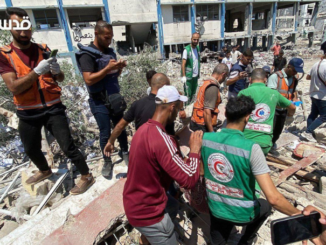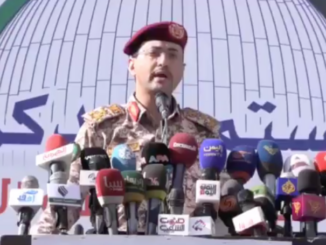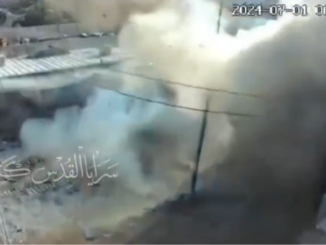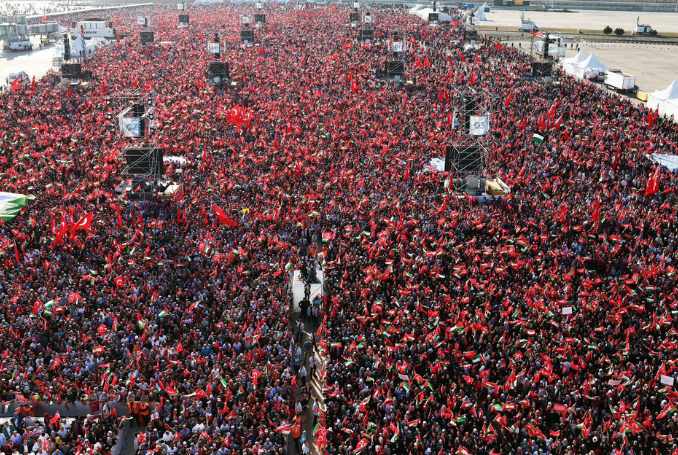
It’s strange living in Istanbul. But in a good way.
Here you can be openly pro-Palestinian and not be attacked or abused for it. Nobody is going to call you an “antisemite” for wearing a keffiyeh or shouting “free Palestine” at a rally.
Things like this happen in Canada, where I’m from. But Istanbul thankfully doesn’t have that problem.
I’m not used to it. I still have in me those anxieties and fears about what’s going to happen if I show any kind of solidarity with Palestine in public.
Not that this would ever stop me from doing so but it’s in me as a result of having been, like many others in the West, demeaned for being pro-Palestinian, as if we’re doing something wrong – a crime for which we should be punished or shamed.
I suppose it’s like being traumatized in some ways though not being a clinician I hesitate to speak further on this one particular point.
Seemingly small events in Istanbul have loosened me up. It’s made me forget more of that Canadian side of me that hesitates to be openly pro-Palestinian, at least without first thinking about the consequences.
Getting off the bus on the way to work one day I came across a newspaper at a kiosk. It was in Turkish and I didn’t understand what the headlines said. But the honest imagery, difficult as some of it is to look at, about the massacres happening in Palestine told me at once that Turkish mainstream media – of which the paper is part – doesn’t shy from exposing not only those massacres but the culprit behind them: Israel.
I bought the paper. I keep it as sort of an artifact. Every so often I open its large pages in my apartment and sift through it. It makes me feel less alone. Reminds me there are places in the world where speaking truthfully about both Palestine and Israel is not taboo.
It’s part of the regular public discussion, reflected in mainstream media, and within it people don’t pretend that Israel is a genuine democracy or that it is waging a “war” against innocent Palestinians in Gaza instead of genocide.
Not long after buying the paper, I went to a coffee house event. Some were wearing keffiyehs and one of them was also wearing a necklace of Palestine. When it was time for those at the event to introduce themselves people candidly shared their concerns about what’s happening in Gaza, the injustice of it all.
None of them were having any issues at their place of work or school about showing solidarity with Palestine, being critical of Israel. Most at the event, which (as an aside) was not centered specifically on a Palestinian theme, naturally related to that solidarity. I felt I was in a place in the world attuned to the facts on the ground, and history, where people are not intimidated into thinking that Palestine is “bad” and Israel “good.”
This false duality seems hardly apparent in Istanbul. In Canada that duality is unfortunately commonplace. You can get fired for speaking up for Palestine on the grounds that you are, in doing so, supporting “terrorism.”
Perhaps the event that most reassured me that it’s okay to be pro-Palestinian here is when, at work, I was wearing a “justice for Shireen Abu Akleh” t-shirt, and a colleague, who had I not yet met, came up to embrace me. The beloved Palestinian journalist had been close to him when he was working with her for Al Jazeera and had mentored him too.
The brief but heartfelt encounter confirmed to me that in Istanbul people love Palestine, in its beauty and its suffering. It’s not a place where it gets routinely demonized, as in the West, where it feels that various interest groups or parties are constantly attempting to sway the public from recognizing Israel’s oppression of Palestine itself.
It’s been hard getting adjusted to life in Istanbul. I still don’t know Turkish and am away from my family. But I feel I’ve merged with yet another among the many here who embrace Palestine, refusing to accept any narrative that dishonestly frames it – and not Israel – as a threat to our shared humanity.
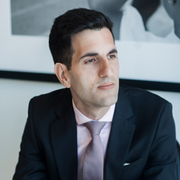
– Paul Salvatori is a Toronto-based journalist, community worker and artist. Much of his work on Palestine involves public education, such as through his recently created interview series, “Palestine in Perspective” (The Dark Room Podcast), where he speaks with writers, scholars and activists. He contributed this article to The Palestine Chronicle.


